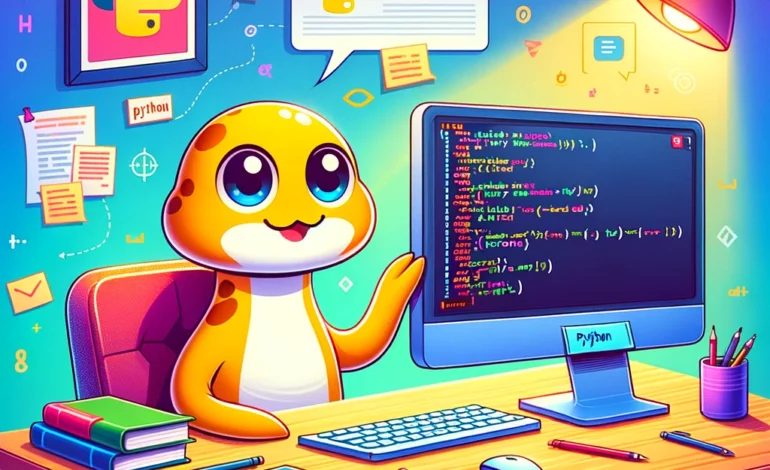How to Start Learning Python: A Beginner’s Guide

Introduction: Python has emerged as one of the most popular programming languages, renowned for its simplicity and versatility. Whether you’re eyeing a career in software development, or data science, or just looking to expand your technical skills, learning Python is a valuable investment. This guide offers a step-by-step approach to kickstart your Python learning journey.
Why Choose Python? Python’s simplicity and readability make it ideal for beginners. It’s used in a wide range of applications, from web development to artificial intelligence, making it a versatile skill in your tech toolbox. Additionally, Python has a vast and supportive community, providing an abundance of learning resources and libraries.
Step 1: Understand the Basics Before diving into coding, familiarize yourself with Python’s basic concepts:
- Syntax: Python’s syntax is clean and easy to understand, making it ideal for beginners.
- Variables and Data Types: Learn how variables store data, and the types of data Python can handle.
- Control Structures: Understand how to control the flow of your programs with loops and conditionals.
Step 2: Set Up Your Environment To Start Learning Python, you’ll need the right tools:
- Python Installation: Download and install Python from the official website.
- Integrated Development Environment (IDE): Choose an IDE like PyCharm or VSCode to write and test your code efficiently.
Step 3: Practice with Simple Projects The best way to learn Python is by doing. Start with simple projects like a calculator or a to-do list application. These projects will help you apply the concepts you’ve learned and gain practical experience.
Step 4: Explore Python Libraries Python’s power lies in its libraries. Libraries like NumPy for scientific computing, Pandas for data analysis, and Flask for web development can expand your Python capabilities.
Step 5: Join the Python Community Engaging with the Python community can greatly enhance your learning. Participate in forums like Stack Overflow, join Python meetups, or contribute to open-source Python projects.
Resources to Get Started:
- Online Courses: Platforms like Coursera, Udemy, and Codecademy offer Python courses for all levels.
- Books: ‘Automate the Boring Stuff with Python’ and ‘Python Crash Course’ are great for beginners.
- Tutorials: Websites like Real Python and W3Schools offer free tutorials and exercises.
Conclusion: Starting your journey in Start Learning Python programming is an exciting venture. With its ease of learning and wide applicability, Python opens doors to numerous opportunities in the tech world. Remember, the key to mastering Python lies in consistent practice and continuous learning. Embrace the challenges and enjoy your coding journey!
